General Jim Jones' speech held in Tirana on the 18th of October 2019, in concern to NATOs Future, the 5G Network, Cyber Security and The Three Seas Initiative.
Thank you, Fatmir, for your very kind introduction and for inviting me to participate in today’s discussion, and thank you for hosting this event for us. Thank you Speaker Ruci, thank you Charge d’Affaires Leyla Moses-Ones, and a warm welcome to all of you attending this morning.
Thank you all for being here and for allowing me to participate in what I believe will be a very interesting conversation on some vitally important topics.
It really is an honor to be here. I have, at various stages of my career, been very invested and involved in this region of the world and its participation in both continental and transatlantic organizations.
As a two-star, I spent time in neighboring Bosnia and Croatia.
As Supreme Allied Commander NATO, I helped Albania prepare for NATO accession. I remember when I came to Albania as NATO Commander on my birthday, and Fatmir and a Commando regiment organized a very nice birthday party for me.
As National Security Advisor, I was in Strasbourg in April of 2009 when Albania was officially welcomed as a NATO Member. I was there to see than Prime Minister Berisha and the representatives of both the majority and opposition parties united together.
Now, I am anxiously awaiting Albania’s eventual acceptance to the European Union and the Three Seas Initiative: two organizations to which I believe Albania would be a tremendous addition.
I have been disappointed in recent events and regrettable decisions which have excluded Albania from both of these efforts. Such miscalculations reject the potential for more transregional, transcontinental, and transatlantic partnership and degrade the credibility of these organizations in places where it must be bolstered.
However, I do not despair; in fact, I am very hopeful. Time and again, Albania has proven itself a valuable partner for safety and prosperity. I have witnessed firsthand this nation’s ability to recalibrate, respond, and reemerge better than ever. With continued vigilance in meeting the preconditions for EU accession and enduring interest in the Three Seas Initiative, with join efforts from all sides Albania will become closer to achieving its security and partnership objectives.
In addition to these measures, I believe Albania can achieve its highest potential by focusing its efforts on critical priority: secure 5G.
5G NETWORK
Today, the so-called fourth generation technology revolution promises to dwarf the impact of every advancement before its time. Think artificial intelligence… robotics… big data analytics… autonomous vehicles and weaponry… remote surgery… machine learning, and smart cities… and so much more.
These enormous leaps in human capability are poised to transform nearly every aspect of how we live, work, play, and defend ourselves. How these innovations develop, and under whose leadership, will have much to say about the future balance of economic power and global geopolitical influence now and in the decades to come.
At the core of this emerging period of new life-altering technology- a singular technology pulling it all together and making it possible- is the next generation of wireless communications networks- known as 5G.
While 4G was evolutionary, the speeds and capacities provided by 5G networks will be disruptive and revolutionary… and not just because they will make our cell phones better and our Internet connections faster. 5G will be the central nervous system harnessing the sensors, communication links, computing capacity and learning that will make everybody, everything, and everyplace smarter and more functional.
The country or group of countries that roll out the network quickest and best will enjoy a first mover advantage in developing the innovation-related goods, services, and solutions. It will also create a new category of jobs. Prosperity enables us to secure ourselves, fulfill our commitments to our friends and allies, and advance the nation’s interests and values.
The great power winner of this race will have the upper hand in setting global 5G norms and standards. Nothing could be more consequential in how the global future takes shape. By the way, welcome back to a new bipolar world, this time U.S.- China. Russia is a declining power, and is more of a strategic nuisance than anything else, with Vladimir Putin to blame.
Under China’s model and behavior, precedent informs us that 5G capabilities will be employed to steal intellectual property, monitor and control its population, and control as much of the global data as possible. Conversely, the US and allied model for 5G will be a platform to empower and protect the privacy of the individual, protect intellectual property, and safeguard national secrets, all the while enabling growth and development.
Consider that China is clearly subsidizing the sale of its 5G equipment which enables a pricing policy that is at least 40% less expensive than ours. China has the strategic goal of entrenching its network equipment into the systems that operate the world’s critical infrastructure. One can think of it as the digital belt and road strategy- and many countries are falling for what amounts to a very seductive, but ominously dangerous, strategy.
Unfortunately, we have every reason to believe that, among other things, China sees the deployment of its 5G equipment as commercial intelligence platforms, data syphons and digital sleeper cells sitting at the heart of nation-critical systems across the globe. The digital backdoors and remote-alterable software they contain give China an enormously powerful chokehold- in which 5G can serve as fifth column.
There is good news: the transition to 5G provides the United States, our friends, and allies a golden opportunity to build greater cybersecurity into our networks by improving our supply chain practices and creating more responsible and enforceable global norms.
Making these improvements is crucial to protecting our qualitative military edge, securing command, control and communications networks, achieving greater interoperability, and better protection of our critical infrastructure, as well as safeguarding personal privacy.
But unless the transition is not just to 5G but to Secure 5G, the future will be one of increased vulnerability and insecurity. There will be no smart cities without a secure network, and there will be no protection of security, intellectual property, or privacy for the individual.
We are going to enter the 5G world, of this there is little doubt. 5G technology is the current generation’s “(1957) Sputnik moment,” a time when the headlines could soon announce that China has won the race to 5G over the US and its allies.
As Albania prepares to upgrade its networks to 5G next year, it is imperative that its leaders are discerning and deliberate in deciding who to trust. I echo the Charge D’Affaires’ recent comments and commend Albania on its diligence in keeping its networks safe.
TRANSATLANTIC (NATO) AND REGIONAL (EU) SECURITY COOPERATION
To ensure that the 5G priority becomes the bedrock of Albania’s security standards, this commitment must be applied at every level: transatlantic, continental, and domestic.
On the transatlantic scale, Albania must remain an active and engaged member of NATO.
In its ten years as a member, Albania has proven many times over that it has earned its place in this alliance. Its contributions of forces, support, and resources to missions in Afghanistan, Kosovo, and Latvia (among others) have measurably improved security efforts in the region and around the world. As many of you already know, NATO Secretary General Jens Stoltenberg praised such contributions to the organization in his meeting with your President a few weeks ago, identifying Albania as “a staunch and committed member of NATO.”
Though Albania has already established a reputation as a dependable and valuable partner, taking specific steps will advance the country’s goals of becoming more secure and joining continental partnerships.
Firstly, Albania must continue tracking towards the goal of spending 2% of GDP on defense by 2024. When I was still SACEUR in 2007, Albania had increased its defense spending to 2.21%. Today, it is at 1.25%, but your Prime Minister Rama committed to continue the trend upwards and I believe Albania will meet this goal by 2024. As Albania increases its defense spending, it should keep in mind the absolutely vital strategic importance of investing in bona fide secure 5G solutions, rather than the cheapest option. As both Secretary General Stoltenberg and President Meta noted, one of Albania’s most important efforts is its commitment to maintaining stability and security in the Western Balkans. President himself said, “We should unite all strategic efforts to keep the Western Balkans a West-oriented area, living in peace and sharing the values of the alliance.” One very tangible and monumental way to keep this region’s security rooted in and oriented towards the West is to choose Western-backed secure 5G solutions over less expensive but more dangerous solutions such as Huawei.
Secondly, Albania should capitalize on its upcoming chairmanship of the OSCE to demonstrate its strategic planning and leadership capabilities. I would like to recognize and to thank George Tsereteli (President of the OSCE Parliamentary Assembly) and Roberto Montella (Secretary General of the OSCE Parliamentary Assembly) for being here today and for the outstanding work you are doing for this organization. Already, Albania has developed an agenda which tackles pressing issues across the political and military, economic and environmental, and human dimensions. It will address everything from the crisis in Ukraine to institutional corruption to violent extremism. I would recommend that Albania make secure 5G a part of its program. As chairman, Albania can lead by example. Encourage fellow OSCE members to exercise the same assiduousness in deciding how best to upgrade their networks.
Thirdly, Albania must be certain to align its 5G standards with those which have been established by NATO. In last month’s meeting of NATO Defense Ministers, which Minister Xhaçka attended, defense officials agreed to updated baseline requirements for 5G and telecommunications. It is clear that the discussions around 5G are becoming more frequent and more serious, which will result in serious action and, if done right, curb serious consequences. Albania had demonstrated clearly to its fellow NATO members that it is already a part of the fight: now is the time to gear up for it.
At the continental level, Albania must work closely with other European nations to become compliant with transatlantic security standards. Interoperability across Europe will be impossible without a cohesive strategy and unified commitment to broader secure 5G compliance. Like NATO, the EU is actively updating its requirements for 5G preparedness and, earlier this year, asked member states to conduct individual 5G risk assessments. Last month, the European Commission published a report on the EU coordinated risk assessment on cybersecurity and 5G networks. This report adeptly identifies that the inherent security challenges relate not only to unanticipated innovations but also to the role of suppliers. To demonstrate accordance with EU standards, Albania should also take seriously the question of suppliers and make choices which will present it as a viable, dependable, and interoperable partner.
Additionally, Albania should abide by and encourage conformity to the Prague Proposals, which resulted from this year’s Prague 5G Security Conference. The ideas presented are reflective of a comprehensive and forward-thinking approach to 5G; they incorporate the importance of stakeholder involvement, requisite investment, and secure innovation. Albania and others should strive to implement the policy, technology, economy, and security recommendations set forth in the Prague Proposals and retain this template for ongoing 5G discussions.
Albania should also consider joining other European nations in issuing a Memorandum of Understanding with the U.S. on 5G resolutions. Most recently, Estonia issued a Joint Security Declaration on 5G Security with the White House. This statement not only expressed mutual support for the Prague Proposals, it also outlined agreement on rigorous evaluation of providers and supply chains. As the U.S. and Europe continue to work closely towards secure 5G, Albania can demonstrate its congruity with the rest of the continent by establishing a strong approach to 5G with the United States.
In implementing these steps, I believe Albania will illustrate well its willingness to, as President Meta said so well, “double down” on efforts to prove that it would be a great addition to other partnerships such as EU.
DOMESTIC SECURITY COOPERATION (POLITICAL AND CROSS-INDUSTRIAL)
In the domestic sphere, Albania must develop an integrated approach and universal standard for security in Albania. This includes cyber security for critical infrastructure.
Modern warfare is much different than what we have known in the past. Preparedness used to be about personnel and wherewithal. Now, it also hinges on economic power and technological prowess. To be a reliable partner, one must demonstrate institutional integrity, financial responsibility, and a modern perspective on security.
I am pleased to see so many industries represented here today, as this century’s challenges require cross-sector cooperation and solutions. Protection of Albania’s critical infrastructure – energy, public administration, defense, telecommunications, health, banking and finance, transportation, retail, and others – is absolutely essential.
In the energy sector, for example, the rate of cyber incidents for “Operational Technology” and the “Industrial Internet of Things” is rapidly rising and represents serious risks. Unlike IT cybersecurity- which centers around protecting confidentiality, data, and privacy- cybersecurity for Operational Technology is focused on protecting people, processes, operations and highly valuable strategic assets. In the Public Administration Sector, cybercriminals are holding city governments hostage. For example, in just one US state, seven ransomware attacks have been reported since the beginning of this year. Four cities agreed to pay the ransom demanded in order to regain access to their data and systems.
It is hard to over-estimate the risks ahead for all of us in cyber security. Cyber security is not just firewalls, passwords, and network protection. It begins with sound government legislation, followed by thorough policies, robust and continuous training for cyber operations and critical incident responders, assessment and remediation of existing systems, easily understood guidance and expectation-setting from government and industry leadership, collaboration across sectors, and above all, a personal commitment to cyber awareness and protection from everyone. The best firewalls and network protection in the world can be easily defeated by a “cyber mistake” by a single individual.
In addition to cross-industrial cooperation, optimum security demands political consensus. This is a bipartisan issue: there is no room for disagreement on the need to modernize and prepare for 21st century threats. As SACEUR, I was happy to see the ruling party and the opposition in Albania working together towards common strategic objectives. The safety and wellbeing of all Albanians is a goal that is surely shared across the aisle. This issue of secure 5G transcends partisanship and it is paramount to protecting the citizens of this country.
Albania finds itself in a crucial moment: one which very much parallels the global 5G moment. In the wake of what may seem like a setback, two paths emerge. One beckons us to abandon our best efforts and our best selves: it quickly devolves into chaos. The other demands our resilience, our grit, and our commitment to that of which we are capable. I have been proud to support Albania in its endeavors for improved security and increased partnership, and I am hopeful that in this moment the best of Albania will prevail.

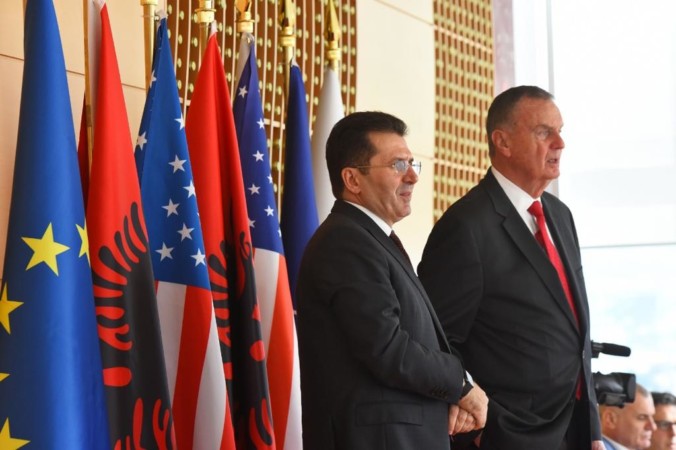
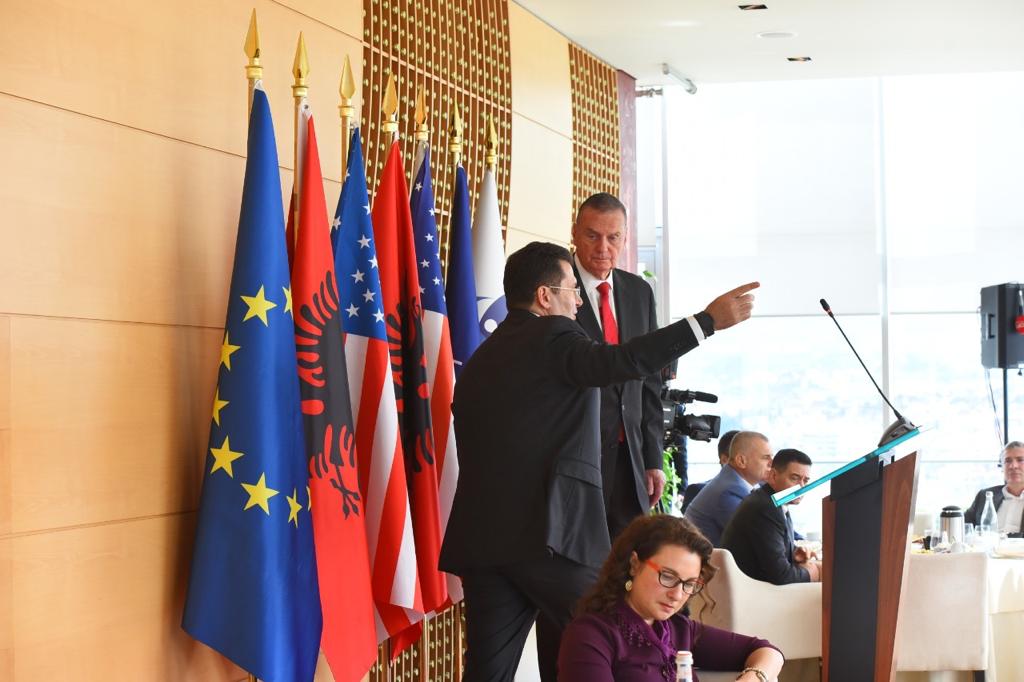
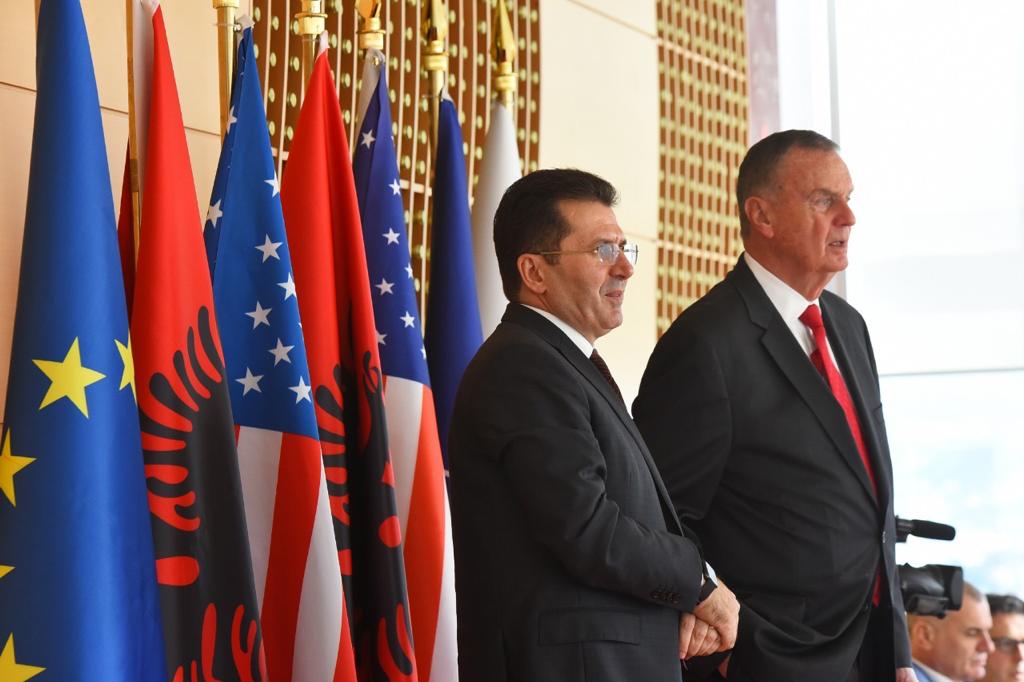
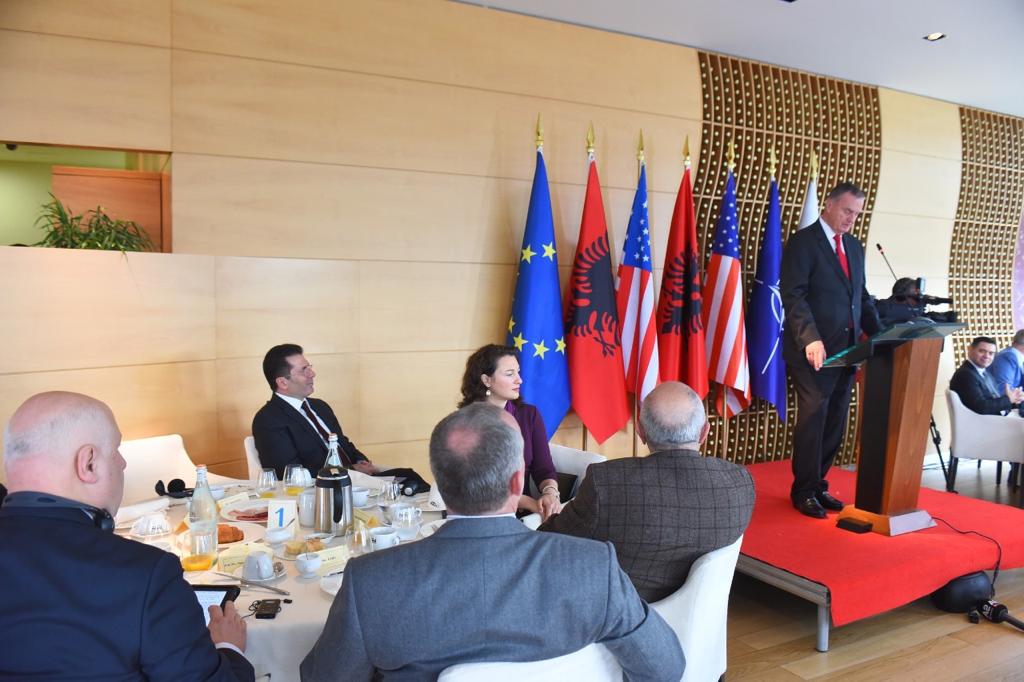
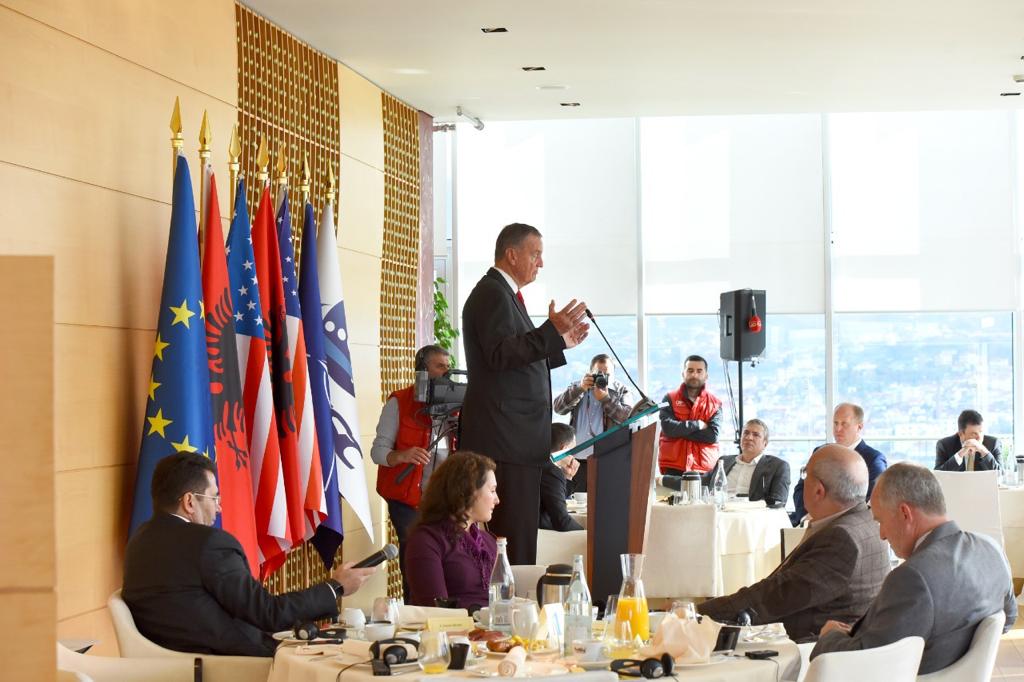
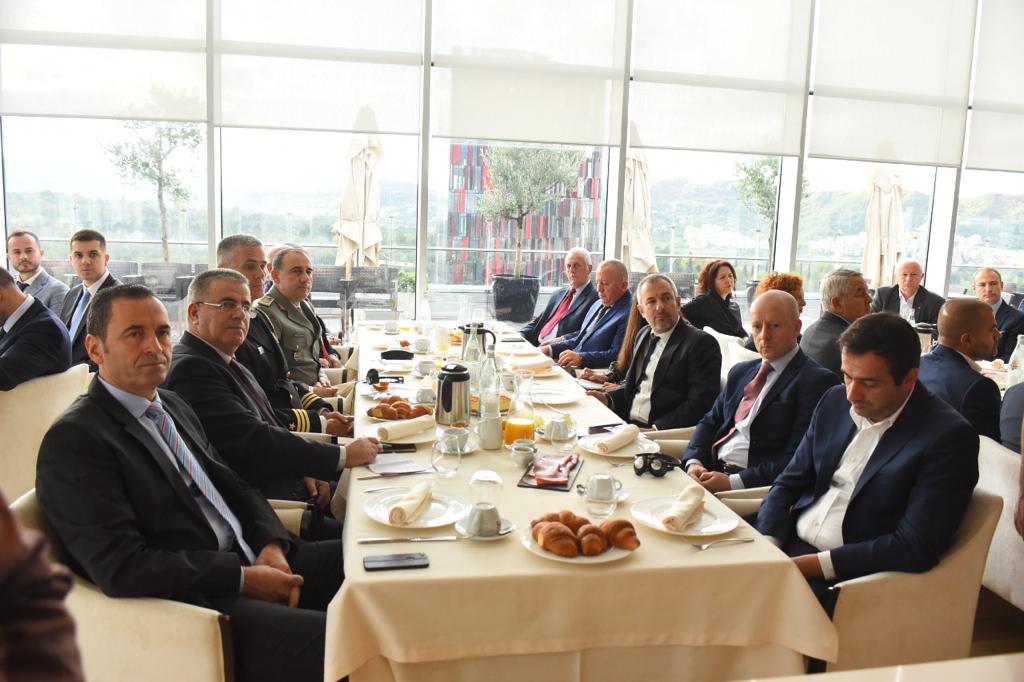
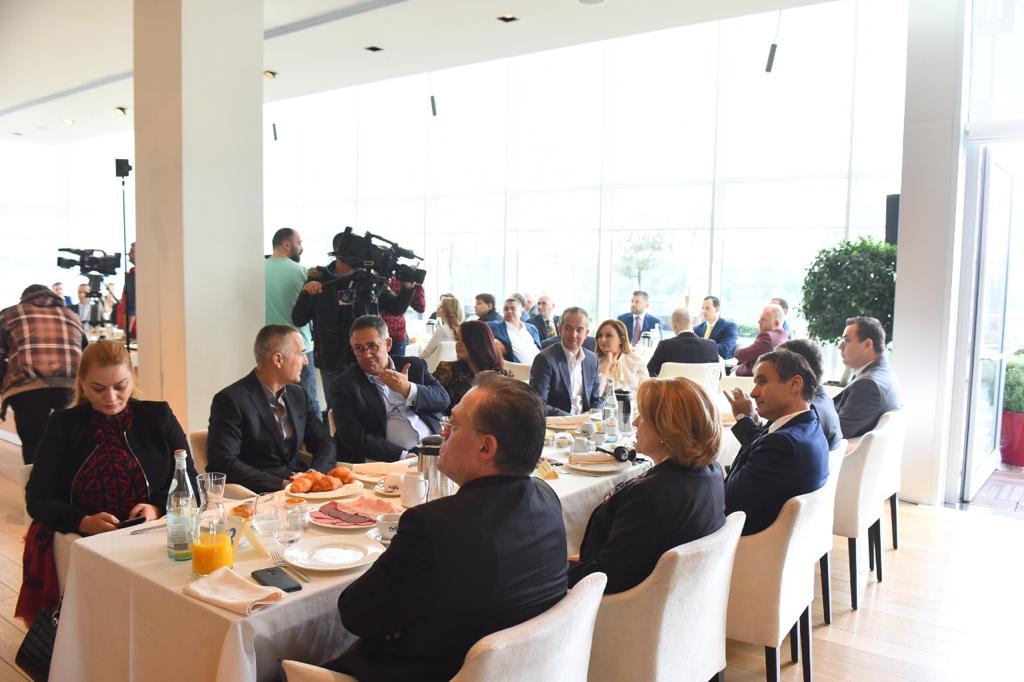
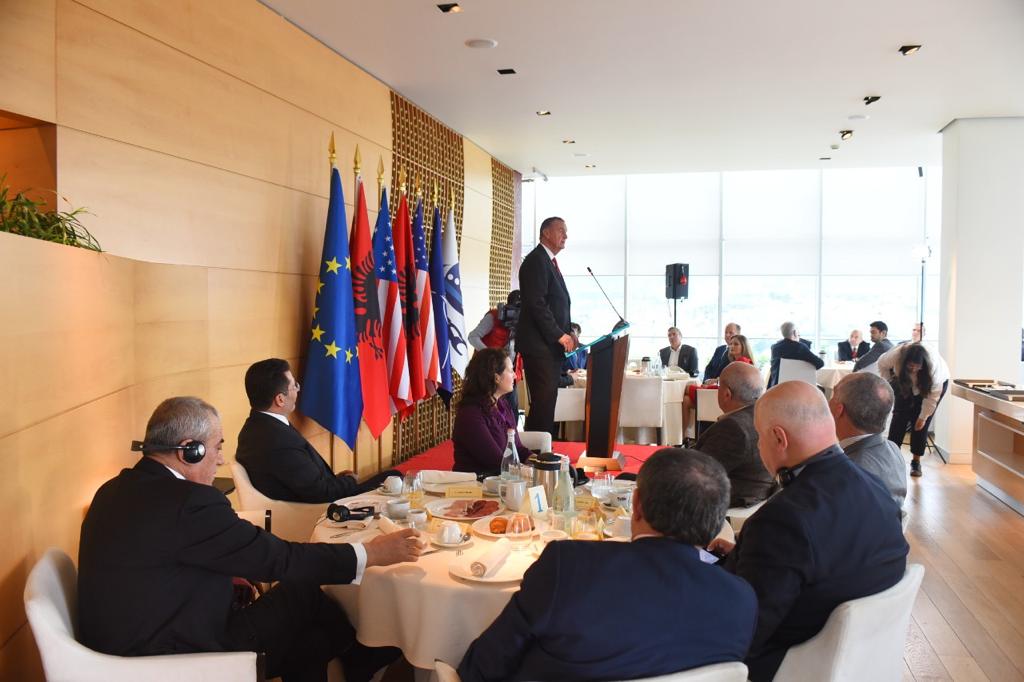
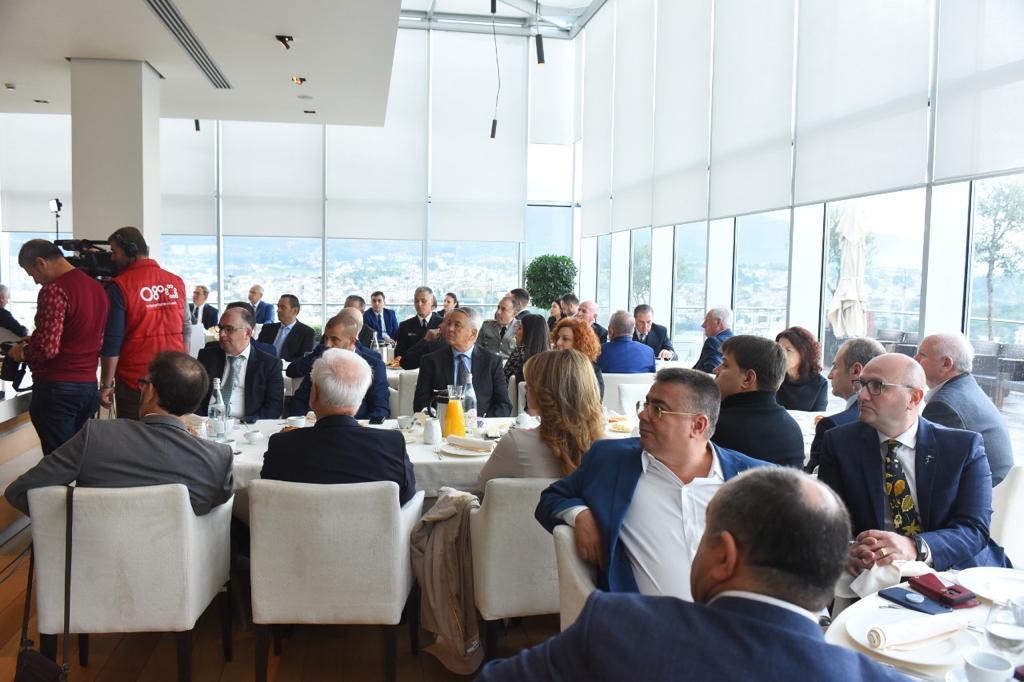
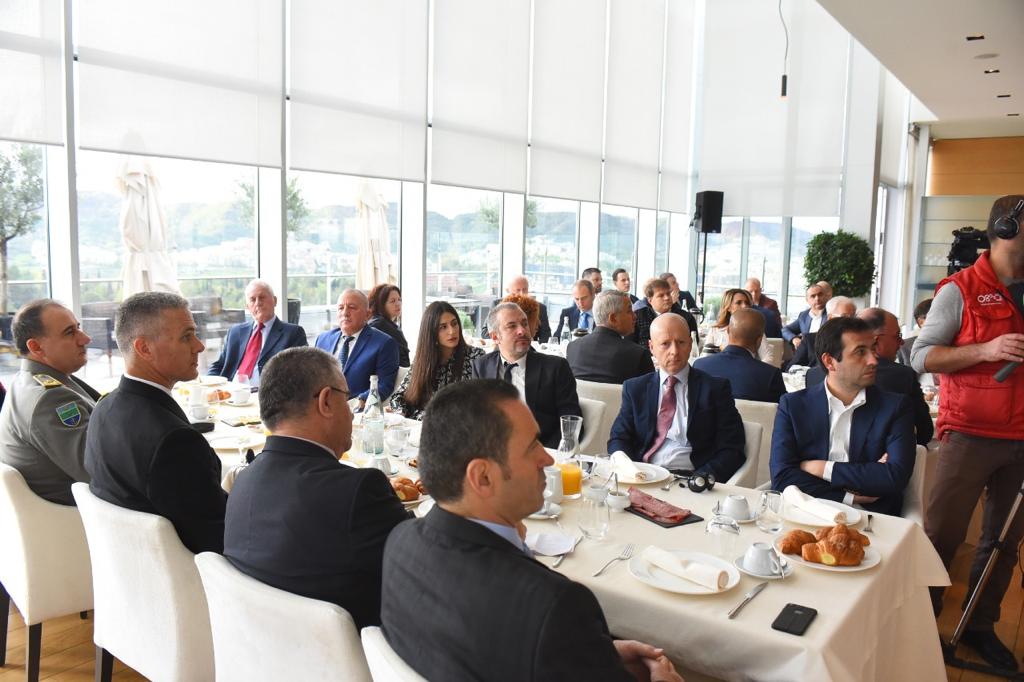

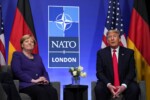

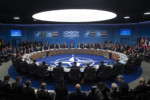
Leave a Reply